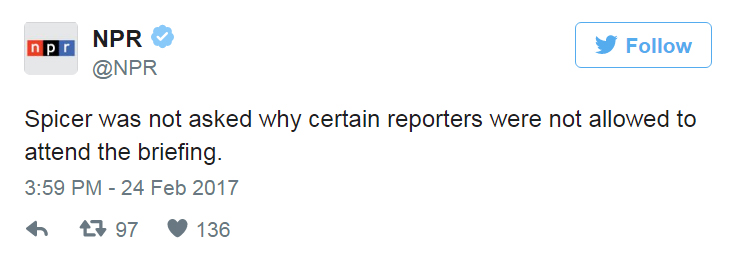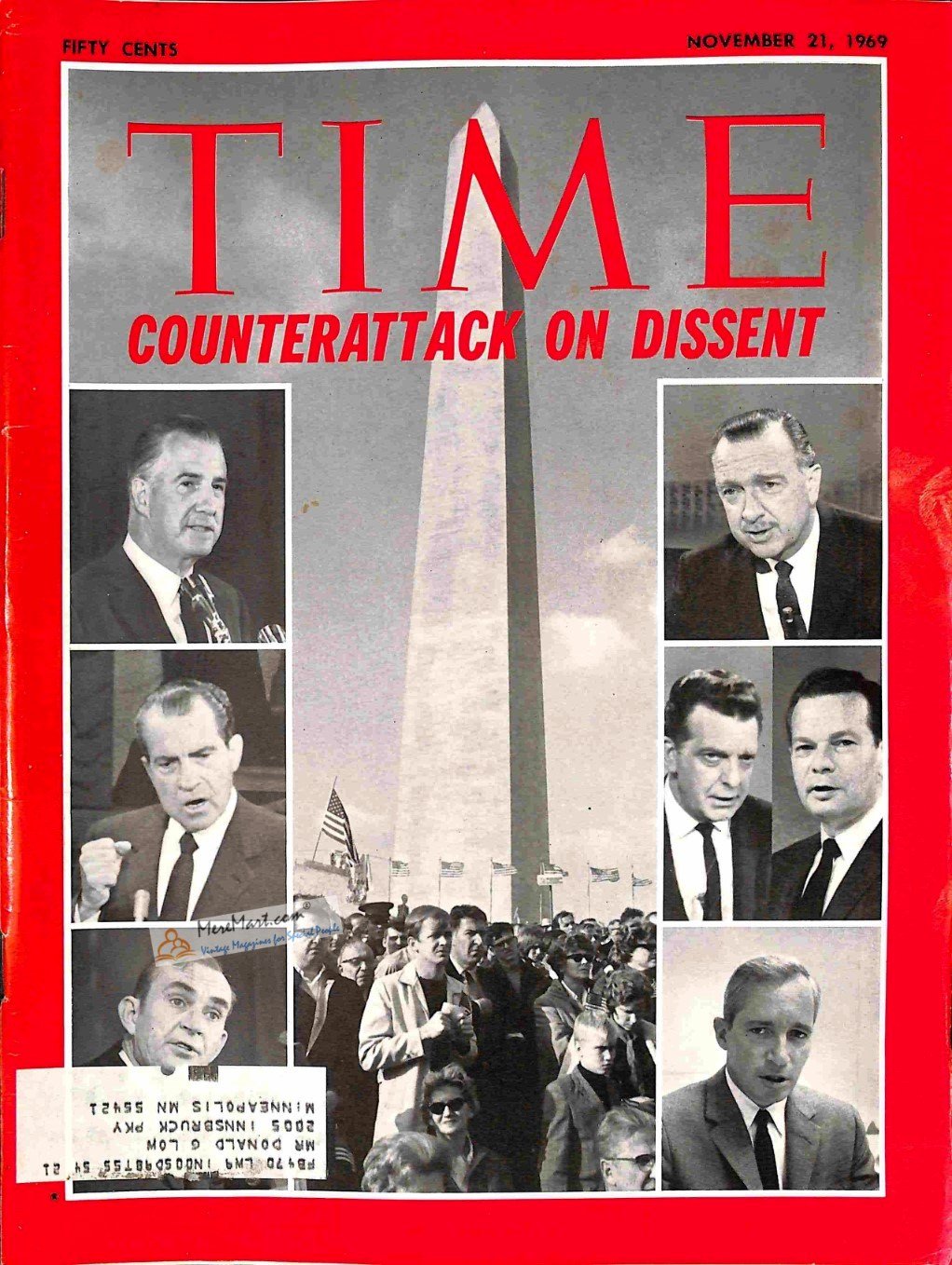The war on the free press was ratcheted up today when press secretary Sean Spicer moved the daily briefing from the White House briefing room to his office.
Daily press briefing moved to off-cam gaggle in @PressSec office. Reporters who were not approved entry being turned around. pic.twitter.com/KXrPFHQ3l5
— Alex Mallin (@alex_mallin) February 24, 2017
In so doing, Spicer barred The New York Times, the Los Angeles Times, Politico, and CNN from attending.
Perhaps coincidentally — likely not — they happened to be the organizations who reported that the Trump administration tried to pressure the FBI to downplay connections between Russia and the Trump team. CNN led the reporting on that story.
Journalists from The New York Times, CNN and Politico were barred from attending a White House briefing https://t.co/XBVmXIIxUG pic.twitter.com/STFHTJwvPX
— The New York Times (@nytimes) February 24, 2017
CNN was blocked from WH @PressSec's media gaggle today. This is our response: pic.twitter.com/8SfY2uYKEI
— CNN Communications (@CNNPR) February 24, 2017
To their credit, the Associated Press and Time decided to boycott the briefing in support of a free press.
That’s not unusual.
In 2009, reporters rallied around FoxNews when the Obama administration declared that the network “is not a news organization.”
That set up an exchange between then-ABC News reporter Jake Tapper and then White House press secretary Robert Gibbs:
Tapper: It’s escaped none of our notice that the White House has decided in the last few weeks to declare one of our sister organizations “not a news organization” and to tell the rest of us not to treat them like a news organization. Can you explain why it’s appropriate for the White House to decide that a news organization is not one –
(Crosstalk)
Gibbs: Jake, we render, we render an opinion based on some of their coverage and the fairness that, the fairness of that coverage.
Tapper: But that’s a pretty sweeping declaration that they are “not a news organization.” How are they any different from, say –
Gibbs: ABC –
Tapper: ABC. MSNBC. Univision. I mean how are they any different?
Gibbs: You and I should watch sometime around 9 o’clock tonight. Or 5 o’clock this afternoon.
Tapper: I’m not talking about their opinion programming or issues you have with certain reports. I’m talking about saying thousands of individuals who work for a media organization, do not work for a “news organization” — why is that appropriate for the White House to say?
Gibbs: That’s our opinion.
Too bad Fox didn’t return Tapper’s favor. It attended today’s briefing. So did, NBC, CBS, and ABC.
Not one of theme even bothered to pursue the obvious story, NPR reported via Twitter.
If true, it betrays either an ignorance to recognize an issue, or a reluctance to speak truth to power by asking it a tough question.
[Update 8:28 pm ] NPR ombudsman Elizabeth Jensen says (via Facebook) NPR was not invited did not request access to today’s briefing, relying on a radio pool reporter to provide details. Here is the statement from Michael Oreskes, senior vice president of news.]
Tapper, meanwhile, who now works for CNN, remains consistent.
Tapper is 🔥🔥🔥. pic.twitter.com/eiP9xE4MEM
— Matthew Gertz (@MattGertz) February 24, 2017
Outside of journalism circles, however, how you felt about the attitude toward the press depended on whom you voted for.
Media Matters, for example, was wholly on the White House side on the issue in 2009.
The exchange did not spark a debate about the ability of news organizations to cover the White House, it sparked a debate on whether FoxNews was a “real” news organization.
That fact is why today’s barring of White House reporters from White House information isn’t going to hurt the Trump administration in the least with those Americans the administration values most: the ones who voted for it.
The president’s reaction today to the stories about his administration’s attempt to pressure the FBI — he wants a crackdown on leaks — reveals a truth: The journalists got the story right.
But American don’t handle truths well.
FLASHBACK: @seanspicer in Dec. says Trump WH won't ban specific media outlets. "That's what makes a democracy a democracy vs a dictatorship" pic.twitter.com/qYd6xE4IwN
— Kenneth P. Vogel (@kenvogel) February 24, 2017
And we’ve done this before.
Related media: NPR’s Full Press On Presidential Press Conferences (NPR Ombudsman)


